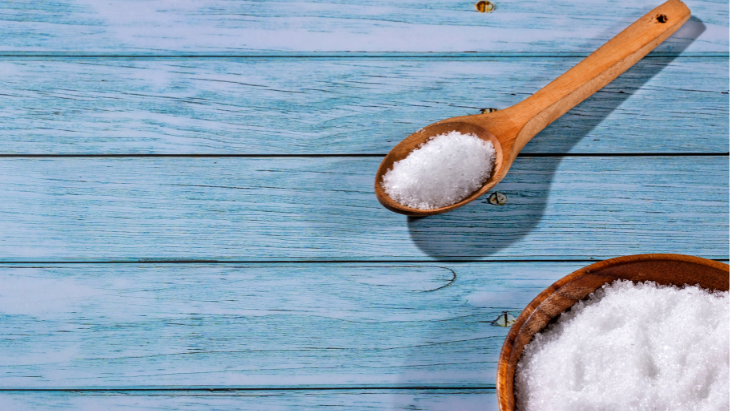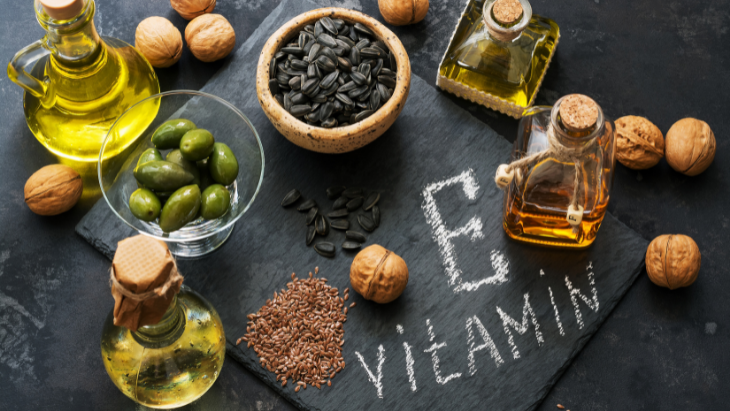What are Micronutrients and Why Does Your Family Need Them
- All Ages

Keeping your family healthy and sniffle-free is every parents' goal, particularly coming into the cooler winter months. If you find that your pleads to the kids to put on a jumper, it's cold outside! are often said in vain, there is another way to practise good health to help stave off those winter germs.
If you've never heard of micronutrients before, you're probably wondering what micronutrients are and why we need them. We chatted to the supplement experts at Supps R Us about the essential benefits of micronutrients for the whole family.
What are Micronutrients?

There are two main food groups: macronutrients and micronutrients.
Macronutrients are carbohydrates, proteins and fats, which provide the body with kilojoules for energy, muscle and tissue development.
Micronutrients include vitamins and minerals. Vitamins help our bodies to produce energy, fight disease and develop healthily. Minerals support body processes to assist with bone health, fluid balance and healthy growth. All humans, from babies to the elderly, require sufficient and balanced micronutrients for optimum health and wellbeing.
While most Australians consume enough macronutrients from their daily diets (and sometimes too many!), many people lack at least some essential micronutrients. And while a healthy and balanced diet should provide most people with sufficient micronutrients, our modern lifestyles, processed foods, fussy eaters, stress, intense exercise and muscle building, and other environmental and lifestyle factors can result in nutrient deficiencies.
But don't worry, there are ways to ensure your family is getting the proper amount of nutrients to grow and stay healthy, even those pesky little fussy eaters!
Essential Micronutrients for the Whole Family
Supps R Us walk us through some of the most critical micronutrients required to support the entire family's health.
Zinc
Zinc supports our immune systems, protein synthesis and muscle recovery, and wound healing. Zinc is found naturally in meats, poultry, legumes, seeds and nuts, eggs and dairy.
Low zinc levels can lead to fatigue and a weak immune system, making you more susceptible to viruses and infections. Zinc can affect hormones, too - it helps men maintain healthy testosterone levels and can assist in supporting the thyroid. Zinc deficiency can result in low thyroid levels and weight gain.
Feeling run down, sluggish and out of whack? You're likely dealing with low zinc levels.
Magnesium

Magnesium supports muscles, bones and energy. It helps control blood pressure, balance electrolytes and improve sleep. Foods rich in magnesium include spinach, almonds, black beans, pumpkin seeds and even dark chocolate - yippee!
Those who love working out or lifting weights may experience muscle weakness and poor muscle function without proper magnesium levels. Other deficiency signs include muscle cramping, spasms, restless legs, and poor sleep quality.
Need a magnesium boost? Several fantastic magnesium supplements are on the market, depending on your requirements, and many are suitable for children. Look for a high-quality multivitamin containing zinc, such as Switch Nutrition's Adrenal Switch or Muscle Nation's 100% Natural Daily Greens.
If sleep is your number one concern, you can incorporate magnesium powders, bath soaks, or magnesium sprays into your evening routine to help you fall asleep faster and enjoy quality, restful sleep. Magnesium is a fantastic option for little ones struggling to get some decent shut-eye.
Potassium
Potassium supports the nervous system and helps maintain fluid and electrolyte balance, hydration, and muscle health and recovery. It's recommended to regularly incorporate potassium-rich foods like bananas, lentils, white beans, coconut water and squash into your diet.
Common signs of potassium deficiency include fatigue, muscle cramps, constipation, low blood pressure and heart arrhythmia (an irregular heartbeat). Many families find it challenging to consume sufficient amounts of potassium, so look for potassium-specific supplements and multivitamins containing potassium.
Vitamin E

Vitamin E is a powerful micronutrient and natural antioxidant that assists several essential body functions, including supporting the immune system and protecting cells from free radicals and cell damage. It also supports the body's anti-inflammatory response and helps encourage wound and scar healing.
Do you need more vitamin E? Try including a high-quality multivitamin supplement with vitamin E. You can also apply topical vitamin E to help moisturise skin and assist in skin healing.
Omega-3 Fatty Acids
There's no need to fear "fats" anymore! Omega-3 is a vital, good fat to help our muscles, energy levels, skin, hair, nails and joints. Omega-3 assists in body conditioning, lean muscle development and greater strength. Omega-3 supports joint health and connective tissue and even promotes shiny hair!
Salmon, cod liver oil, flax seeds, chia seeds and walnuts are excellent sources of Omega-3 fatty acids. In need of a supplement? Supps R Us recommend a good quality Omega-3 supplement such as Pillar Performance Ultra Omega.
Iron
Low iron is one of Australia's more common micronutrient deficiencies, particularly among women. Iron helps bring oxygen to muscles and supports hormonal health and immunity, while children require iron to improve their motor and cognitive development.
Iron is found in red meat, seafood, white beans, lentils, spinach, peas, nuts and kidney beans.
Iron deficiency leaves sufferers feeling depleted, exhausted and unable to function effectively. Common colds and flu are also signs of potential iron deficiency, as poor iron levels lower the immune system's efficiency.
Iron absorption may also be an issue. Consult with your doctor if you are concerned about your iron levels or your iron absorption functionality.
There are several great iron supplements on the market. Consider liquid iron to help reduce unwanted side effects such as constipation. Adding a good quality green powder to your daily routine will help support iron levels and overall health.
Vitamin D

We naturally absorb vitamin D from the sun, but several factors prevent sufficient absorption from sun exposure alone. Skin tone, pollution levels, sun-safe practices, geographic, seasonal and lifestyle factors all impact our ability to rely on the sun for our daily vitamin D dose.
Vitamin D products are available, such as liquid drops that are easy, safe, and convenient for kids and families. Adults should ensure that their multivitamin includes vitamin D.
It's essential to always consult with your GP if you feel you may be suffering from a micronutrient deficiency. A blood test can help to accurately identify a nutrient deficiency in both adults and children.
Visit Supps R Us for a wide range of supplements to support your family's health.
More Healthy Inspiration
Healthy Snack Ideas for Kids
Colds And Flus: How To Survive The First Year Of Daycare
Five Immune-boosting Foods for Winter Wellness
Have you signed up for our newsletter? Join ellaslist to get the best family and kid-friendly events, venues, classes and things to do NEAR YOU!
Reviews


